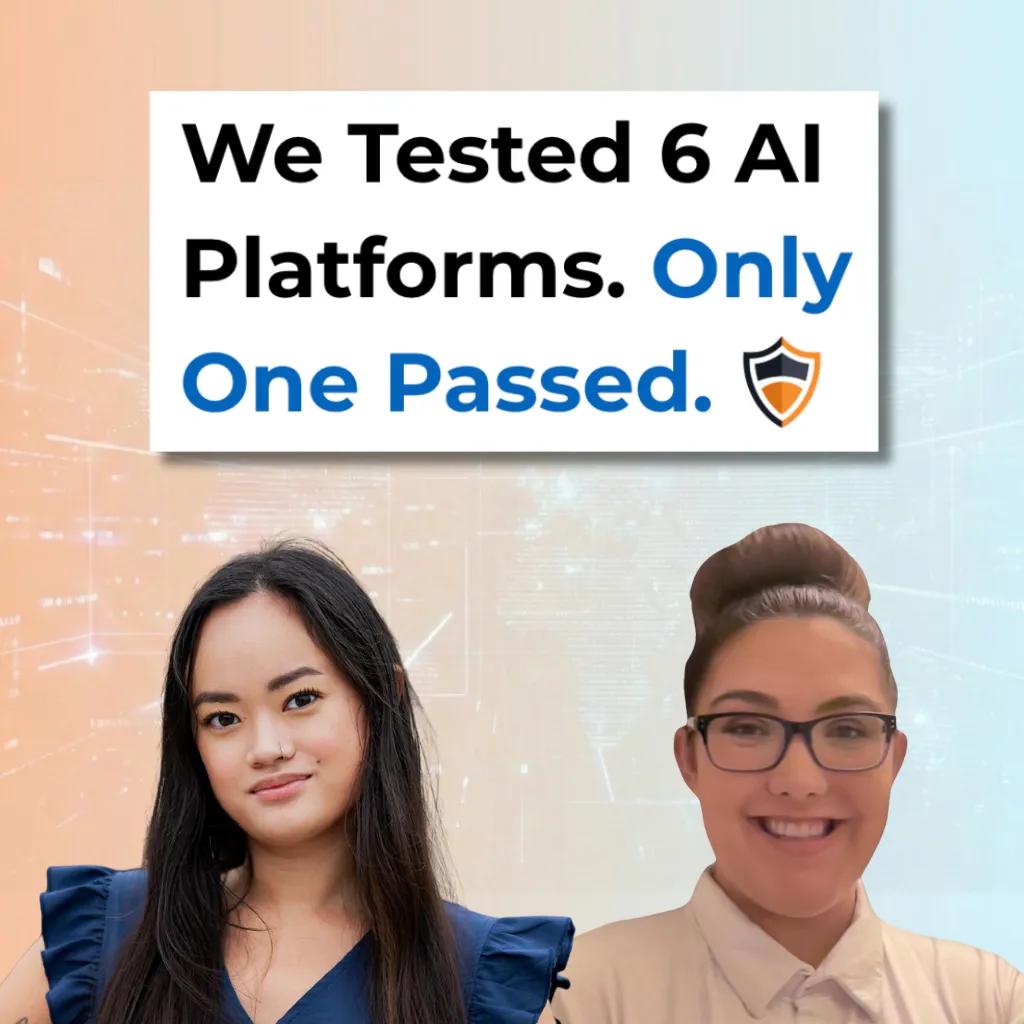Healthcare providers dedicate their lives to patient care, yet many find themselves spending more time on documentation than with patients. While digital tools like electronic health records aimed to streamline workflows, they've often added layers of complexity to an already challenging situation. Even with dedicated support staff, healthcare professionals often spending evenings and weekends catching up on documentation instead of recharging or spending time with family.
The healthcare community has been searching for solutions, and recent developments in AI medical scribe technology have helped address these challenges and given healthcare professionals additional hours back in their day.
Generative AI technology has evolved to offer sophisticated support for healthcare providers through AI documentation assistants. These tools work alongside clinicians during patient encounters, helping to capture and organize clinical information while allowing providers to focus more fully on patient interaction. Leading healthcare organizations and medical associations have begun exploring these AI assistants as potential tools to enhance practice efficiency and support provider wellbeing.
You might be wondering: How can we thoughtfully implement this technology while protecting patient privacy and maintaining clinical excellence?
We understand your questions about bringing AI into the sensitive space of patient care. The relationship between provider and patient forms the foundation of healthcare, and introducing any new technology into this space requires careful consideration. At BastionGPT, we believe in open dialogue about our AI tools - discussing how they work, exploring their capabilities, and developing best practices for safe, effective implementation. We regularly hear from providers who share how our tools have helped them spend more time with patients while maintaining high documentation standards.
Understanding How AI Documentation Support Works
Think of BastionGPT as a collaborative copilot in your documentation process. The system works alongside you during patient encounters, helping to capture clinical information and create drafts of structured notes based on your style of writing and preferred formatting. This approach helps reduce time spent on administrative tasks while maintaining your control over all clinical documentation.
When you work with BastionGPT, you'll find it supports various documentation needs:
- Creating initial drafts of progress notes, SOAP notes and DAP notes
- Helping structure consultation summaries
- Supporting the development of referral letters
- Organizing clinical information in your preferred format
- Providing analysis of patient clinical information
- Improving coding and helping with the revenue cycle and billing processes
- Delivering recommendations for care and treatment plans
Many providers report positive outcomes when implementing these tools thoughtfully. For example, primary care practices often find they could redirect 2+ hours per day from documentation to patient care. A multi-provider specialty clinic reported that providers generally spent about 35% less time on documentation tasks after implementing AI support tools.
The Essential Partnership Between AI and Clinical Expertise
BastionGPT works as a supportive tool to enhance your clinical practice - never as a replacement for professional judgment. You maintain full control over all clinical decisions and documentation, with the AI serving as an assistant to help draft, organize and structure information while you focus on patient care.
Every document created with AI support requires your review and approval before becoming part of the official record. This collaborative approach helps maintain high documentation accuracy while reducing administrative burden.
Understanding AI's Capabilities and Limitations
When implementing AI documentation support, it's important to understand both its potential benefits and inherent limitations. Let's explore how healthcare providers can work effectively with these tools while maintaining high standards of clinical care.
Common Documentation Challenges
AI documentation tools can sometimes face challenges similar to those encountered by human scribes or medical students. Understanding these potential issues helps providers implement appropriate oversight and quality control measures:
Transcription Variations: Medical terminology presents unique challenges for AI systems. For example, similar-sounding terms like "hypertension" and "hypotension" might occasionally be confused. While our AI models and transcription services have been tailored to healthcare terminology, your clinical expertise helps catch and correct these variations during review.
Context and Nuance: While AI tools excel at capturing spoken information, they may miss important non-verbal elements of patient encounters. A patient's body language, emotional state, or subtle clinical signs rely on your professional observation and documentation during review.
Information Accuracy: AI systems sometimes exhibit what we call "hallucinations" - adding information that wasn't part of the original encounter. Your review process helps ensure all documented information accurately reflects the actual patient interaction.
Putting AI Documentation in Context
Current research into traditional medical documentation suggests that manual entry in electronic health records can lead to various documentation challenges. Studies indicate that patients who review their records often identify discrepancies, highlighting the importance of thorough documentation review regardless of the tools used.
BastionGPT's tools aim to support improved documentation quality through:
- Structured formats that promote completeness
- Consistent organization of clinical information
- Tools for efficient review and correction
- Integration with existing clinical workflows
Why Healthcare Provider Oversight Makes the Difference
Your clinical expertise brings irreplaceable elements to the documentation process:
Clinical Context: You understand how each piece of information fits into the broader picture of patient care, including implications that might not be obvious to AI systems.
Pattern Recognition: Your experience helps you notice subtle connections between symptoms, findings, and patient history that inform clinical decision-making.
Comprehensive Care: Your knowledge of the patient's overall health status, family history, and social context helps ensure documentation captures all relevant factors.
Quality Control: Your review transforms AI-generated drafts into comprehensive clinical documents that accurately reflect patient encounters.
Best Practices for Implementation
Successfully incorporating AI documentation support into your practice typically involves several key steps:
Developing Your Review Process
Consider establishing a consistent approach to document review that fits your workflow:
- Review notes shortly after patient encounters while details remain fresh
- Focus particular attention on key clinical elements like medications and treatment plans
- Increase engagement with patients during encounters while the AI helps with documentation
Critical Elements for Review
When reviewing AI-generated documentation, consider focusing on:
Clinical Content:
- Accuracy of symptoms and findings
- Medication names and dosages
- Treatment plans and follow-up instructions
- Complex medical histories
- Any unexpected or unusual information
Contextual Elements:
- Patient affect and behavior
- Non-verbal communications
- Environmental or social factors
- Family dynamics and support systems
Security and Privacy Considerations
Healthcare privacy represents a fundamental responsibility. BastionGPT was founded by healthcare and Cybersecurity experts who understand how to protect your information and follow industry best practices. Many competitors claim that their systems use “Pseudonymization” and “Separation of Patient Identifiers,” but those are no longer best practices and create more risk for the accuracy of your data. We understand how to protect the integrity and security of your data without making false, high risk, or misleading claims about security.
BastionGPT's security framework includes:
Data Protection:
- Regular security assessments and updates
- Strict access controls and authentication measures
- Time-limited data retention policies
- Clear protocols for data handling
Compliance Support:
- HIPAA compliant security measures
- International privacy standard compatibility (APP, PIPEDA, FERPA, and more)
- Regular compliance monitoring and updates
- Clear audit trails for system interactions
Looking Ahead: The Evolution of Healthcare Documentation
As healthcare continues to evolve, documentation tools will likely continue developing to better support clinical practice. The key lies in finding the right balance between technological assistance and clinical expertise.
BastionGPT remains committed to working with healthcare providers to develop tools that enhance clinical practice while maintaining the highest standards of patient care. We believe that by supporting documentation efficiency, we can help providers focus more energy on elevating patient care.
The future of healthcare documentation points toward a collaborative partnership between providers and technology. With thoughtfully implemented AI support, healthcare providers can potentially spend less time on administrative tasks and more time on patient care.
Getting Started
We understand that incorporating new technology into clinical practice represents a significant decision. Consider these steps as you explore AI documentation support:
- Start with a trial period in your specific practice setting
- Begin with straightforward documentation tasks
- Provide your existing notes and reports as examples so the AI can match your documentation preferences
- Create clear protocols for document review and approval
- Regularly assess the impact on your workflow and documentation quality
Our team works alongside providers to support successful implementation, offering resources and guidance based on real-world experience across various clinical settings.
Your Partner in Clinical Documentation
Healthcare providers deliver essential care every day, and they deserve tools that support their important work. While AI technology continues to evolve, the fundamental goal remains constant: supporting healthcare providers in delivering excellent patient care.
We invite you to explore how AI documentation support might fit into your practice. Whether you're looking to reduce administrative burden, enhance documentation quality, or find more time for patient care, we're here to work with you in developing solutions that support your clinical practice.
If you’d like to learn more you can start a trial, reach out to [email protected] or schedule some time with our AI experts.




.png)
.png)